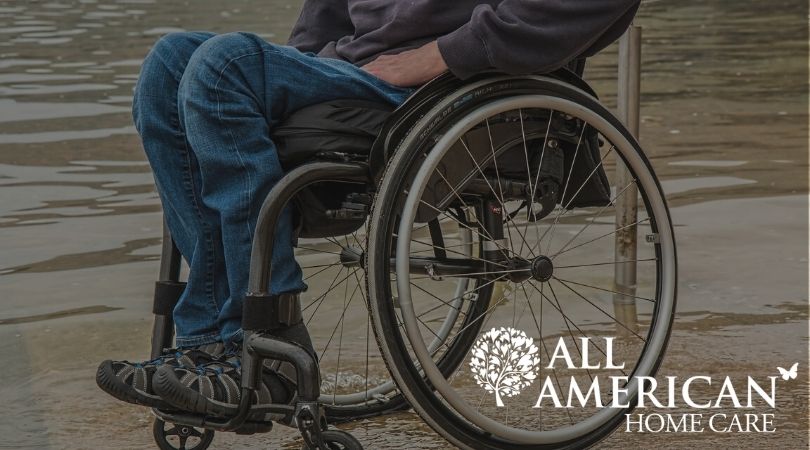
5 Ways You Can Support Patients with Physical Limitations
October 13 2020
Tips on Offering Help, Supporting Their Autonomy and Reminders on Basic Rules of Respect
As a cagiver, you will encounter people with many different types of physical limitations. Some people may have had these limitations since they were young while others may be experiencing the physical limitations that come with aging. No matter the circumstances, there are 5 ways you can help support your patients with physical limitations.
Take Time to Learn
Do your homework and learn about a specific physical limitation. Don’t be afraid to ask the patient questions if you are unsure about something. It is better to ask and learn than to do something wrong or to offend the patient. Now is also a good time to freshen up on good body mechanics when transferring patients.
Don’t forget to also learn about your patient beyond their physical limitations. Their condition does not define who they are. Learn about their childhood, what their favorite foods are and their favorite hobbies or activities. Getting to know your patient on a deeper level will help you offer them better and more personalized care!
Be Flexible and Supportive
Just like any other medical condition, your patient will have good days and bad days. With some conditions, such as MS, your patient’s needs may change from day to day. It’s important that you be flexible and supportive. Make sure to check in with their mental health as well, especially for patients who are newly experiencing a physical limitation. It can take some time to get used to their new situation and they could be feeling depressed, anxious or even angry.
Don’t Just Assume, Instead Ask Before Helping
Don’t assume that a patient with a physical limitation needs help. Instead of just jumping in, ask first before helping. It is important that people with physical limitations be treated as autonomous human beings who are worthy and capable of doing things on their own. When offering your help, ask if there is anything you can do to make the situation easier for them. If they decline your help, don’t take it personally. And if they ask for help first, ask them for specific instructions on how you can be of assistance.
The Importance of Mobility Aids
Some of your patients may already have mobility aids, such as a cane, walker or wheelchair. However, if you see them struggling more than is necessary, or a patient hasn’t yet had mobility aids recommended to them, offer your suggestions or ask if they would like to be seen by a physical therapist for expert help. Mobility aids allow people with physical limitations more independence and can help lift their mood and improve self-esteem.
It is also important to be aware of your patient’s personal space. Those who use a mobility aid consider their aid part of their personal space. As a basic part of putting safety first, do not push someone’s wheelchair without first asking their permission and never lean on or move their mobility aid.
Be Respectful when Speaking to Them
Do not refer to your patient as a “disabled person.” Instead, use person-first language and refer to them as a “person with disabilities” or a “person with physical limitations.” This language is humanizing because it puts the person first and the physical limitation second. Remember, people with physical limitations are human and their limitations do not define who they are.
Make sure that you also speak directly to your patient and not to whomever they are with. Also, don’t speak louder. Assuming that a person’s physical limitation affects their hearing or mental acuity is disrespectful. Even if a patient who has a physical limitation is hard of hearing, it is still important to not speak loudly. Doing so can, in fact, make it harder for them to hear what you are saying. The same goes for patients with a physical limitation plus a condition such as dementia. Do not treat them as dumb or slow.
Remember that a conversation is a two-way street so make sure that you always use active listening with all your patients, including those with a physical limitation. Hear what they are telling you about their needs and address their concerns just like you would with any other patient. Above all, follow the Golden Rule. Simply put, treat others the way you wish to be treated. It is about mutual respect.
Conclusion
Caring for patients with physical limitations is only as hard as you make it. Keep these basics plus good manners in mind when interacting with your patients and you’ll be able to develop a closer relationship with them and provide them with better care.





